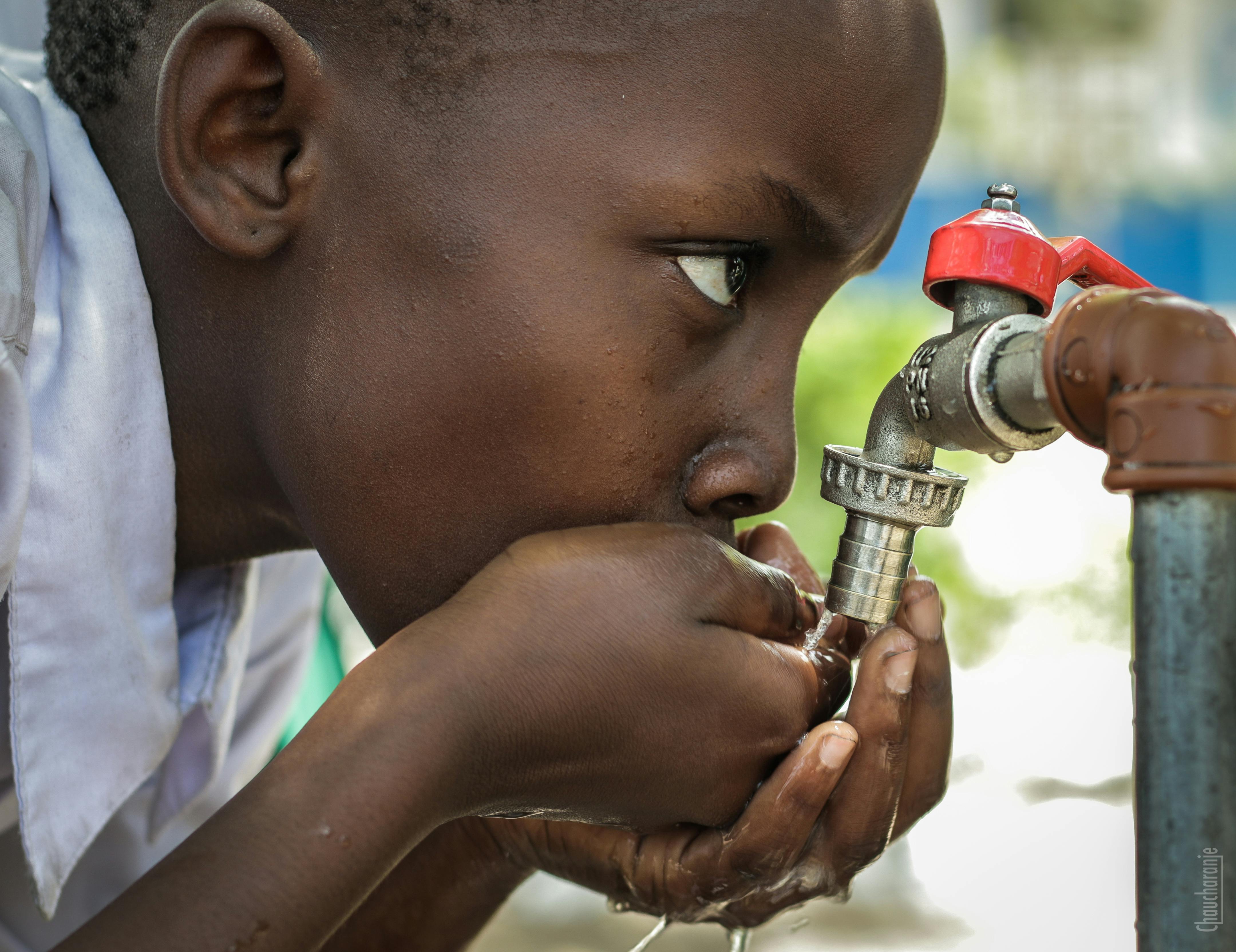Distilled water is a type of purified water that has had many impurities, such as minerals and other contaminants, removed through a distillation process. It is a popular choice among many people looking to improve the quality of their drinking water. Distilled water has been used for centuries to provide clean drinking water and is believed to have many health benefits. In this article, we will discuss the benefits and drawbacks of drinking distilled water.Yes, distilled water is safe for drinking. It is essentially pure water that has been boiled and evaporated to remove any contaminants, such as bacteria, minerals, and other impurities. This means that it does not contain any of the chemicals or toxins that can be found in tap water. As long as it is stored in a clean container, distilled water is a safe and healthy choice for drinking.
Benefits of Drinking Distilled Water
Drinking distilled water is considered to be one of the healthiest options available. Distilled water is free from any contaminants and minerals, making it a much purer form of water than what you would find in most other sources. It has a longer shelf life and has been found to be beneficial for those who suffer from certain medical conditions. Here are some of the main benefits of drinking distilled water:
Contaminate-Free
Distilled water is free from all contaminants, including bacteria, chemicals, and heavy metals that can be found in other sources of drinking water. This makes it ideal for those who have allergies or sensitivities to certain substances. It also means that it is safe for drinking purposes, as there are no unwanted additives or toxins present.
Lower Risk Of Digestive Issues
The lack of minerals and contaminants in distilled water makes it easier on the digestive system. This can help reduce the risk of digestive issues such as constipation and diarrhea. The body also absorbs distilled water more quickly, which can help improve hydration levels.
No Mineral Build-Up
The lack of minerals also means that there is no risk of mineral build-up in pipes or in your drinking vessel. This can lead to a longer lifespan for your pipes and drinking vessels, as they will not be damaged by mineral deposits over time.
Better Tasting Water
The lack of minerals also means that distilled water has a much better taste than other sources of drinking water. This makes it ideal for those who prefer their drinking water to have a cleaner taste, without any unpleasant aftertastes.
Overall, there are numerous benefits to drinking distilled water instead of tap or bottled water. It is free from contaminants and minerals, making it safer for consumption than other forms of water. It also helps reduce the risk of digestive issues and mineral build-up in pipes or vessels over time. Finally, its clean taste makes it preferable for many people who prefer their drinking water to have no aftertaste at all.
Disadvantages of Drinking Distilled Water
Distilled water may be free from contaminants and pollutants, but it does have some drawbacks. Firstly, distilled water lacks minerals, such as calcium and magnesium, which are essential for bodily functions. Without these minerals, distilled water can leach minerals from the body when consumed in large amounts. Furthermore, it can also cause mineral deficiencies over time.
Additionally, distilled water has a flat taste due to the lack of minerals. As a result, many people do not enjoy drinking it and opt for other types of filtered water instead. Moreover, distilled water can also be slightly acidic due to the process it undergoes during distillation. This acidic environment may potentially damage tooth enamel overtime if consumed regularly.
Finally, distilled water does not contain fluoride which is found in tap water and is beneficial for preventing dental cavities and strengthening teeth. Therefore those who are consuming only distilled water may miss out on this important benefit of fluoride unless they take supplements or use a fluoride-containing toothpaste.
Distilled Water
Distilled water is a type of purified water that has had both impurities and minerals removed. It is created by boiling water and then condensing the steam into a clean container, leaving many of the solid impurities behind. The end result is a clear, odorless liquid that is free of chemicals, minerals, and other contaminants. Distilled water can be used for a variety of purposes, including drinking, cooking, cleaning, and medical use. It is also often used to fill car batteries and other automotive fluids.
The process of distillation relies on the different boiling points between water and its various impurities. When heated to boiling point, the purer water vaporizes first and leaves behind any solid particles or dissolved minerals in the original source water. The vapor then rises up through a still where it cools and condenses into distilled liquid which can be collected in a clean container.
Although distilled water lacks most of its natural mineral content, it can still provide some beneficial health effects due to its purity. It does not contain any added chemicals or toxins like those found in tap water which can have adverse effects on your health in the long term. Additionally, since it does not contain any salt or minerals it helps reduce bloating when consumed regularly as part of your daily hydration needs.
Distilled Water vs. Other Types of Water
Distilled water is different from other types of water because it has been purified through a process known as distillation. During distillation, water is boiled and the steam is collected and cooled, leaving behind any contaminants that may have been present in the original water source. As a result, distilled water is free from minerals, impurities, and other particles that can be found in tap water or other sources. It also has a neutral pH level, meaning it does not contain any acids or bases that could affect its taste or safety for consumption. Distilled water can be used for drinking, cleaning, or cooking purposes without any concern over safety or taste.
However, distilled water does not provide essential minerals such as calcium and magnesium that are found in other types of water and come with health benefits. Distilled water can also taste flat compared to other types of water due to the lack of minerals. Lastly, distilled water can be more expensive than other types of water because of the extra processing involved in its production.
Overall, distilled water is an effective way to remove impurities from a source but does not provide essential minerals that are beneficial for our health and can cost more than other types of drinking water.

What Contaminants Does Distilled Water Remove?
Distilled water is created through a process called distillation, which is a method of separating contaminants from water. During distillation, the water is boiled and then condensed, which results in the removal of minerals, metals, and other contaminants. This process leaves behind pure, clean water that is free from various types of pollutants.
The contaminants that are removed by distillation include inorganic compounds such as calcium, lead, mercury, sodium, chloride and sulfates. It can also remove organic compounds like chlorine and its by-products, insecticides, herbicides and pharmaceuticals from water. Additionally, bacteria and other microorganisms can also be removed with this process.
Distillation is a very effective way to purify water since it eliminates almost all of the contaminants present in it. It can be used to produce drinking water that is safe for consumption and does not contain any harmful substances. It also removes unpleasant tastes and odors from the water due to the removal of organic compounds during the distillation process.
Overall, distilled water removes a variety of contaminants such as inorganic compounds like lead or mercury; organic compounds like chlorine; bacteria; viruses; unpleasant tastes and odors; as well as other pollutants present in drinking water sources. This makes it an ideal option for those who want to ensure they are drinking clean, safe water free from harmful substances or pollutants.
Distilling and Minerals in Water
Distillation is a process that is used to remove dissolved minerals from water. This process works by heating the water until it turns into vapor. The vapor is then cooled and condensed, leaving behind any dissolved minerals or other impurities. The resulting liquid is known as distilled water, which is free of any dissolved minerals or other impurities. Distilled water can be used for a variety of purposes, including drinking, cooking, cleaning, and more.
The distillation process does not remove all minerals from the water; some will remain even after distillation. These are typically inorganic minerals such as calcium and magnesium, which are not harmful to human health. Trace elements such as sodium, potassium, and iron may also remain in the distilled water; however, these trace elements are typically found in very small amounts and are not considered to be harmful.
It should be noted that distillation does not remove all contaminants from the water; some types of bacteria and viruses may still remain after distillation. Therefore, it is important to use a quality filter system when using distilled water for drinking or cooking purposes. Additionally, distilled water should always be boiled before use to ensure that any remaining bacteria or viruses have been killed off.
In conclusion, distilling can be an effective way to remove dissolved minerals from water but does not completely purify it. It is important to use a quality filter system when using distilled water for drinking or cooking purposes to ensure that any remaining contaminants have been removed. Boiling the distilled water before use can also help kill off any lingering bacteria or viruses that may still remain after distillation.
Is There a Taste Difference Between Regular and Distilled Water?
When it comes to the taste of water, there is a distinct difference between regular and distilled water. Regular water has a mineral content that gives it its unique flavor, while distilled water is virtually flavorless. Distilled water is created by boiling regular tap water, which removes any impurities or minerals that could affect the taste. This process also helps to purify the water, making it safer to drink.
Regular tap water can have a variety of tastes depending on where it comes from and what type of minerals are present in the local environment. In some areas, the tap water may have a hint of chlorine or other disinfectants used in its treatment. In other places, minerals like calcium or magnesium can give the water a slightly metallic taste.
Distilled water, on the other hand, has virtually no flavor at all because all of these mineral compounds have been removed during the distillation process. This makes it an ideal choice for people who don’t like the taste of regular tap water or who need to use purified water for medical reasons.
Both types of waters still offer health benefits, but when it comes to taste preference, there is definitely a difference between regular and distilled waters. Regular tap water has its own unique flavor due to its mineral content while distilled water has almost no flavor at all due to its purification process.

Conclusion
Distilled water is safe to drink and can be used for a variety of purposes. It can be used to make coffee, tea, and even smoothies. While it is not recommended as the main source of drinking water, it can be helpful for people who have health concerns or specific dietary needs. It is important to note that distilled water does not contain any minerals or nutrients, so it is best to supplement with other forms of hydration.
Overall, distilled water can be a beneficial and healthy alternative to tap water in certain situations. While there are some potential drawbacks, such as its lack of minerals and nutrients, it’s still an excellent option for certain individuals. Therefore, if you’re looking for a clean and pure form of hydration, consider adding distilled water to your diet.

